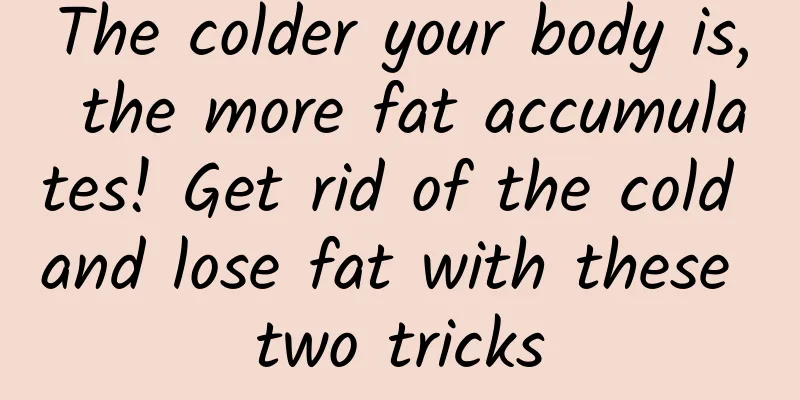Does eating meal replacements help you lose weight? Nutritionist cracks 5QA

|
The principle of weight loss is to make the intake (calories from food you eat) less than the expenditure (calories consumed by the body throughout the day). Therefore, eating less and exercising more has become the only way to lose weight. However, if you want to eat less, you must first know how to calculate calories. For most people, calculating calories is a very troublesome thing. Therefore, meal replacements that claim to "replace regular meals and easily lose weight without counting calories" have become the most common and long-lasting nutritional supplements for weight loss. There are various kinds of meal replacements on the market, and almost all weight loss kits contain meal replacement products. So what exactly are meal replacements? Can you really lose weight easily by eating it? How to choose from so many meal replacement products? How can I use it to make myself slim, fit and healthy? As the weather is gradually getting better, more and more people are seeking to lose weight. Stella will take some time to introduce this evergreen weight loss product - meal replacement. Q1: Why can meal replacements help you lose weight? The so-called meal replacement, as the name suggests, is used to replace a regular meal. Assuming that we consume about 1,600 calories a day, its distribution would be roughly like this: breakfast accounts for about 20-30%, or about 320-480 kcal; lunch and dinner account for about 35-40%, or about 560-640 kcal. The calorie content of general meal replacements is usually between 100 and 150 calories. Therefore, when you use a "meal replacement" to replace the "main meal" you were originally going to eat (assuming you are replacing lunch, and the original lunch had 650 calories), it is equivalent to eating 500 calories less in that meal. Therefore, when you use meal replacements to replace your original meals, you can easily reduce hundreds of calories. If you can continue to use it, you can easily lose a few kilograms of weight every month. Q2: How many kilograms can I lose per month by using meal replacements? Theoretically, to lose one kilogram of weight, you need to eat 7,700 calories less, so how many kilograms you can lose in a month depends on how many calories you reduce every day. For example, if your body needs 1,600 calories per day, and you only eat 1,100 calories a day (500 calories less), then in a month you can reduce about 500×30 days=15,000 calories, which means you can lose about two kilograms of weight. How many kilograms you can lose per month by using meal replacements also depends on this. If you reduce 250 calories per day through meal replacements, you can lose about one kilogram per month; if you reduce 500 calories, you can lose two kilograms... and so on. Therefore, to know how many kilograms you can lose per month by using meal replacements depends on how many calories the regular meal you replace is. Generally speaking, breakfast contains relatively few calories, perhaps only 300 to 400 calories. Therefore, if you replace it with a meal replacement (about 100 calories), you can only reduce 100 to 200 calories per day, so you will lose less than 1 kilogram of weight in a month. The calories consumed in lunch and dinner are generally relatively high, ranging from 600 to 800 calories, or even more than a thousand calories. Therefore, when you replace them with meal replacements, you may reduce more than 500 calories per day, allowing you to lose more than two kilograms in a month. Also, the speed of weight loss through meal replacement depends on how high the calories of the meal it replaces are. The higher the calories, the more calories are reduced after the replacement, and the faster the weight loss rate will be. Therefore, the general recommendation is to use meal replacement to replace lunch or dinner, which would originally consume more calories. Q3: Can everyone lose weight by replacing meals? As mentioned earlier, the principle of meal replacement for weight loss is to use lower-calorie meal replacements to replace the original higher-calorie meals, thereby achieving the goal of reducing intake. Therefore, most people can achieve good weight loss results by using meal replacements. However, for people who usually eat very little for weight loss or those with the following conditions, the effect of meal replacements for weight loss may be quite limited: 1. People who eat small meals frequently: Generally, the calories consumed in each meal is not high, maybe only 200-300 calories, or around 300-400 calories. Therefore, when using meal replacement to replace one of the meals, the calories reduced are extremely limited. Even if accumulated for a month, you may not lose more than one kilogram of weight. PS. If you want to lose one kilogram of weight in a month, you need to reduce about 250 calories a day. In other words, when using meal replacements to replace regular meals, if the calories reduced do not exceed 250 calories, you will lose less than one kilogram in a month. 2. When replacing non-regular meals: Generally, regular meals consist of rice (noodles), meat and vegetables, so hundreds of calories will be consumed in one meal, so the effect will be better when using meal replacements to replace them; but if meal replacements are used to replace non-regular meals, for example, using meal replacements to replace a simple breakfast of just a glass of milk or energy soup, or using meal replacements to replace the original afternoon snack... you may not see the weight loss results of meal replacements because the calories reduced are very small. 3. Those who are already strictly controlling calories for weight loss: If you have been losing weight and have controlled your daily calorie intake to 1,000 calories or less, if you use meal replacements to lose weight, the weight loss rate will be less obvious because the calories you originally eat for each meal are not high, and the calories reduced after the replacement are very limited. Q4: If I want to lose weight faster, can I eat meal replacements for every meal? When using meal replacements to lose weight, people generally tend to replace just one meal, because the more meals they replace, the more depressed they will feel and it will be difficult to sustain, or they may feel overly depressed and end up overeating or binge eating. In addition, if too many meals are replaced, the total calorie intake for a day may be less than 1,000 calories. When the calorie intake is too low, the nutrients in the food may be insufficient to meet the body's needs, thus affecting health, or causing a decrease in basal metabolism due to the inability to meet the body's basic needs. Losing weight is only temporary, while maintaining weight is a lifelong process. "Inability to persist" will prevent us from achieving our desired weight loss goals; and "excessive depression" or "reducing metabolism" will make it difficult for us to maintain the lost weight after losing weight, resulting in rapid weight regain after losing weight. Therefore, it is generally recommended to use meal replacements to replace only one meal a day when losing weight. Of course, it is understandable to use meal replacements twice a day due to special circumstances (such as having a big meal at noon and eating too much food, and occasionally using meal replacements for the other two meals to reduce calories; or occasionally indulging in eating and eating too much food, so replacing the other two meals of the day with meal replacements to balance the excess calories consumed by binge eating), but it is not recommended to eat meal replacements twice a day or even replace regular meals with meal replacements for every meal. Q5: There are so many kinds of meal replacements, salty or sweet. How should I choose? There are many meal replacements on the market. The most common types are (cold) sweet and (hot) salty meal replacements, and meal replacement bars that can be eaten directly. Regardless of the type of meal replacement, the best meal replacement is the one that suits you best. Here are some selection methods for your reference: Taste & Usage: Eat what you like, because only satisfaction can last and you won’t want to eat again after finishing the meal. Therefore, if you prefer sweet taste, you can choose sweet meal replacement; if you prefer salty food, you can choose salty meal replacement; if you don’t like soupy food or think it’s troublesome to brew it, you can choose meal replacement bars. Consider satisfaction. Besides the taste, does it taste good? Does it make you feel full after eating? How long can you last without feeling hungry? These are some of the most direct criteria for evaluating whether this meal replacement is suitable for you. Because meal replacements are used to replace regular meals in order to achieve the goal of reducing calories, if you find a certain meal replacement unpalatable and always don't want to eat it, or you don't feel full easily after eating it, and you feel hungry after two or three hours and want to eat something, or if it makes you feel hungry all the time and you have to use willpower every second to control your appetite, then this meal replacement may not be suitable for you. Consider nutritional value. Since meal replacements are used to replace a regular meal, it is best if the nutrients they contain are sufficient to partially or fully meet your nutritional needs for a meal. Therefore, it is generally recommended that the meal replacement used should have sufficient protein and additional nutrients such as vitamins and minerals. Of course, in addition to paying attention to what nutrients are contained in the meal replacement, you should also pay attention to whether the dosage is sufficient to be meaningful. As for how to judge whether its nutrient content is sufficient and meaningful, we can refer to the DV% value indicated next to the nutrient content. The so-called DV% is the recommended daily dietary intake. If it meets the recommended daily amount, it will be marked as 100%. If the DV% is 30%, it means that 1/3 of the daily requirement of the nutrient can be met. Keep an eye on your total caloric intake. Since meal replacements are used to replace regular meals, if the calories are too high, the calories reduced after replacing the regular meals will be too little. Therefore, you must pay attention to the calories of the meal replacement itself. Generally, a calorie content between 150 and 200 is considered OK. However, it should be noted that some meal replacements may recommend that you add other things together, such as milk, cereal, etc. If you use it this way, you need to add these extra food calories to the meal replacement calculation. In this case, you must evaluate how much calories you can reduce by replacing the regular meals in this way, so as not to eat too much and reduce the calorie effect. This article comes from: Nutritionist Stella's Weight Loss & Nutrition Blog ※For more information, please see "Nutritionist Stella's Weight Loss & Nutrition Blog" |
>>: Will Meal Replacement for Weight Loss Make You Gain Weight Again? Nutritionist’s answer...
Recommend
Can I take birth control pills if I have dysmenorrhea and cold uterus?
It is usually not recommended to take contracepti...
What are the symptoms before menstruation? What are the drastic changes in your body?
Women are most vulnerable when they have their pe...
The diet for cancer patients undergoing chemotherapy starts with breakfast every day! Nutritionists teach you how to eat this breakfast to boost your energy
For cancer patients, proper breakfast supplementa...
Fever is actually a very common symptom of pelvic inflammatory disease.
In medicine, pelvic inflammatory disease is divid...
How is ovulation bleeding diagnosed?
Some women will have two menstrual periods in one...
Experts tell you what to pay attention to after ectopic pregnancy surgery?
With the rapid development of medical technology,...
Work harder to lose weight! Let the army of bacteria help you?
Weight loss is always a hot topic in the summer. ...
Can hula hooping help you lose weight? Local fat reduction has limited effect
Liv Tyler, the Hollywood actress who played the e...
What is endometrial tuberculosis?
What is endometrial tuberculosis? Endometrial tub...
The harm of uterine fibroids in life
Among gynecological diseases, uterine fibroids ar...
What are the symptoms of adnexitis in women?
Adnexitis, as the name implies, is the inflammati...
Have you noticed the causes of cervical hypertrophy?
There are many reasons for cervical hypertrophy. ...
How to care for female pelvic peritonitis
First, let's briefly introduce the basic know...
What tests should I go to the hospital for if I have irregular menstruation?
First, the doctor will ask about the patient'...
Is bone soup the best way to supplement calcium? The longer bone soup is cooked, the more calcium it contains? Nutritionists Debunk Myths
Taiwanese people love to drink soup and also love...









